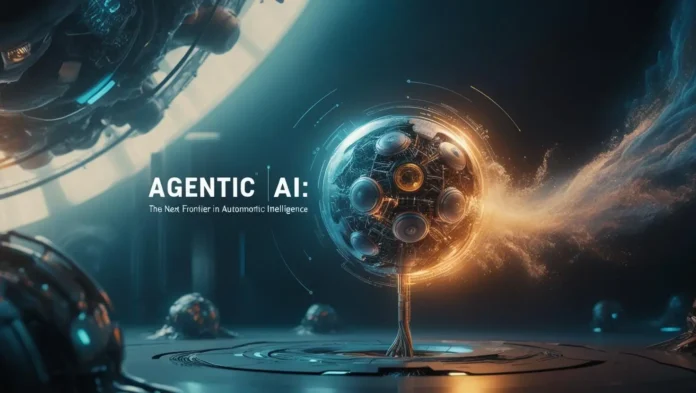Contents
Introduction: What is Agentic AI?
Agentic AI represents a new generation of artificial intelligence that doesn’t just react — it acts. These systems are designed to make autonomous decisions, initiate actions, and adapt to their environment. As we move toward a future shaped by increasingly intelligent agents, understanding this concept is critical.
Want to explore other AI trends? Read our breakdown of Runway Gen-4 AI and how it’s reshaping visual content creation.
Where It’s Being Used Today
Autonomous intelligence is gaining traction across several industries:
Healthcare Applications
From supporting medical diagnostics to personalizing treatment plans, intelligent systems are enhancing patient care.
Smart Decision-Making in Finance
Trading bots now operate independently, managing portfolios in real-time based on data signals.
Virtual Agents Transforming Customer Support
Customer service is increasingly handled by AI agents who understand sentiment and solve issues proactively.
Autonomous Systems in Manufacturing
Factory robots powered by advanced AI manage production lines with real-time adaptability.
Learn more about these integrations in our AI-Powered Workflow Automation guide.
Key Characteristics of Agentic Systems
Agentic systems stand out due to:
- Autonomy – Functioning without human oversight
- Proactivity – Taking initiative on tasks
- Goal Orientation – Operating with purpose
- Adaptability – Evolving based on experience
If you’re comparing AI tools, our Notion AI vs ChatGPT article explores how agents behave in different environments.
Benefits of Agentic AI
There are several advantages to using autonomous intelligence:
- Faster decision-making and operations
- Improved consistency and output quality
- Enhanced scalability with minimal overhead
- Unlocking new forms of human–AI collaboration
MIT Technology Review outlines how these systems are reshaping enterprise automation strategies.
Challenges and Considerations
Despite its promise, this technology brings several challenges:
- Accountability – Who is responsible for autonomous decisions?
- Bias – Is the AI making fair, unbiased decisions?
- Security – Can it be manipulated or hacked?
- Transparency – Are its decisions explainable?
For ethical concerns in next-gen AI, check out Stanford HAI.
Future Outlook
We’re on the edge of an era defined by truly autonomous systems. In the near future, expect:
- AI Research Agents – Discovering new hypotheses without human oversight
- Personal Digital Assistants – Making decisions on behalf of users
- Collaborative AI Systems – Co-creating with humans in content, design, and science
DeepMind and OpenAI are actively working on these frontiers.
Frequently Asked Questions
Q1: What’s the main difference between Agentic AI and traditional AI?
Agentic systems make decisions on their own, while traditional AI models rely on input for every task.
Q2: Is it safe to use Agentic AI?
Yes, as long as developers implement transparency, bias mitigation, and control measures.
Q3: Will this technology replace jobs?
It may automate some roles, but also creates opportunities for new, higher-level collaboration between people and machines.
Conclusion
Agentic AI marks a turning point in artificial intelligence. With its ability to think, decide, and act autonomously, it’s redefining what machines can do. As we embrace this shift, a strong focus on ethics, design, and oversight will ensure these systems benefit everyone.
Curious how future tools will evolve? Don’t miss our article on GPT-4 vs GPT-5 Key Differences for more context.

Agentic AI is such a fascinating yet scary concept. I’m curious how this level of autonomy will be regulated in real-world scenarios. Great overview!
This helped me finally understand the difference between task-specific AI and agentic models. Would love to read more on real-life use cases!
Excellent article! I especially liked the ethical implications you mentioned. Do you think agentic AI could eventually replace middle-management roles?